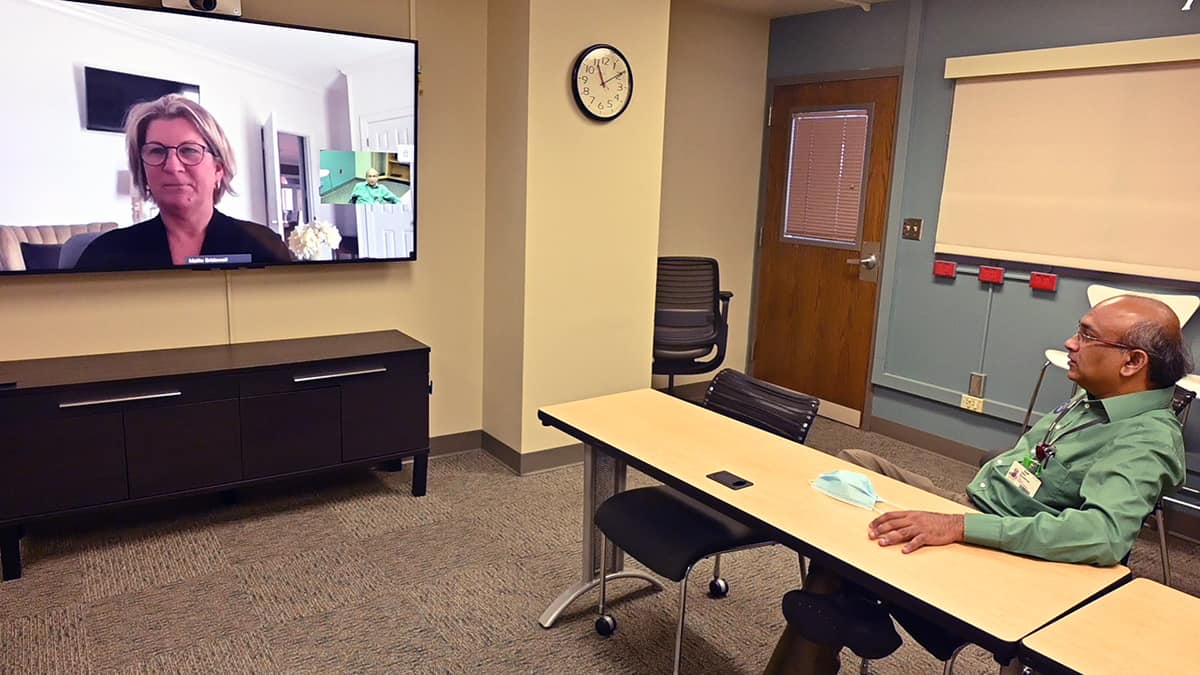UAMS Awarded Nearly $1 Million by U.S. Department of Agriculture for Digital Health Training in Arkansas Delta
| LITTLE ROCK — The University of Arkansas for Medical Sciences (UAMS) Institute for Digital Health & Innovation has received a two-year grant of $999,993 from the U.S. Department of Agriculture for the digital health training of health care professionals, students, business and community leaders, consumers and patients in the Arkansas Delta.
The grant will fund a mix of hands-on and virtual education training at Telehealth Training Centers in the region. The centers will be located at the Arkansas Rural Health Partnership (ARHP) offices in Lake Village, UAMS East Regional Campus at Helena-West Helena and Jefferson Regional Medical Center School of Nursing at Pine Bluff.
The Rural Health Partnership and Jefferson Regional are working with UAMS in the training effort called Arkansas Technology Training and Rural Assistance Center for Telehealth (ATTRACT).
“A person living in the southern Delta of Arkansas has an expected lifespan 10 years less than that of a similar person in northwest Arkansas,” Joseph Sanford, M.D., interim director of the institute. “The training centers will be in counties where education in digital health practices can help to address this disparity.”
Despite great interest in the region in using digital health for clinical care and education, many businesses and health care facilities have stated they need greater support in developing these services, Sanford said.
Hari Eswaran, Ph.D., is the principal investigator for the grant project and the institute’s director of research. The Arkansas Rural Health Partnership is an organization of 14 non-profit south Arkansas hospitals, which also receives support from UAMS.
Each training center will showcase and provide training in using digital health technologies to encourage interaction with technology from a variety of manufacturers in a no-sales-pressure environment.
More than 400 people in the Delta region will receive training through the effort. They will:
- Learn about clinical and educational digital health and how it may help them and/or the people they serve.
- Obtain access to expert digital health knowledge at UAMS, the state’s academic medical center.
- Acquire work skills and certifications that can benefit them in their current or future jobs.
- Increase their understanding of options in rural broadband improvement.
- Expand patient and provider capacity to access digital health services in the region, reflective of their needs and values.
“Roughly half of Arkansas counties are in the Mississippi Delta region, and their populations are rural and medically underserved,” Eswaran, said. “Dr. Sanford, the institute and I are glad to begin working with the Arkansas Rural Health Partnership and Jefferson Regional to show how digital health technology can help to fill that longstanding need and improve the health of people there.”
